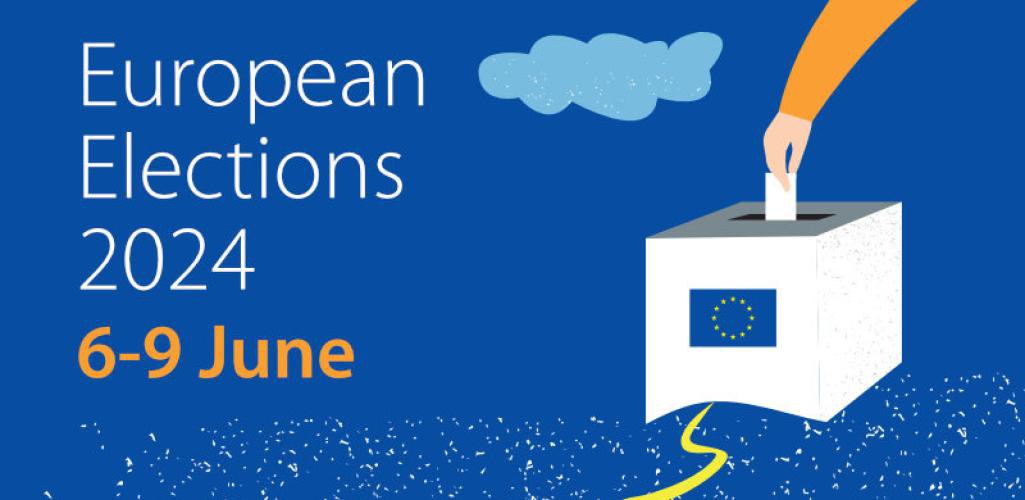By Ali Rıza Taşdelen
The European Parliament elections are being held between 6-9 June. We are in a position to make clearer inferences about the EP structure and the distribution of groups following the elections.
We will use the data of the survey results of the Ipsos research group conducted in March 2024 with 26 thousand voters in the 18 most populous member states representing 96 percent of the European population and 89 percent of the seats in the European Parliament. Beyond predicting the election results, we will try to interpret the new landscape of the EP that will emerge after the elections.
4 phenomena across Europe
The first phenomenon: In almost all European countries, especially in France, Germany and Italy, nationalist parties will increase their parliamentary seats. However, there are divisions and splits among the nationalist parties. European conservatives and nationalists are divided into two groups: “Identity and Democracy” (ID) which includes Marine Le Pen’s party and “European Reformists and Conservatives” (les Conservateurs et réformistes Européens – CRE) which includes Fratelli D’Italia, the party of Italian Prime Minister Giorgia Meloni. We will discuss this issue in more detail below.
The second phenomenon: The relative stability of the two main groups in the EP representing the traditional European political families of the right and the left.
The European People’s Party (EPP), which includes members of the French Republicans (LR) and the German Christian Democrats (CDU), has historically been the party with the largest number of representatives in the EP. The EPP would retain its first rank position with a similar number of seats (177 EP members compared to 176 at the end of the 2019-2024 term).
The political group of the Party of European Socialists (PES) will show a similar trend to that of the EPP. PES’s number of seats, now 139, is expected to be 136. They will thus remain the second political force in the EP. The French Socialist Party and the Spanish Socialist Workers’ Party (PSOE) are also part of this group.
The third phenomenon: The Liberals and the Greens are in decline.
The third-placed “Renew Europe” group, which includes members of the French presidential majority (Macron’s list) and Ciudadanos in Spain, could lose 17 seats (from 102 to 85).
The Greens/European Free Alliance (Greens/EFA) group is also expected to lose 17 seats. The number of seats of the group, which includes the French members of the “European Environment and Greens” (Europe Ecologie Les Verts- EELV) and the German members of the “Greens” (Die Grünen) could fall from 72 to 55.
The fourth phenomenon: The Left Group (GUE/NGL) will continue to be the smallest political group in the EP. The group, which includes Jean Luc Melenchon’s “La France Insoumise” (LFI) and Germany’s “Die Linke” (Left Party), could increase from 37 to 42 seats.
There are also independent candidates who are not members of any party. They are expected to increase their number from 52 to 68.
Commonalities and differences of nationalists
Can the nationalist group “Identity and Democracy” (ID), which is currently in 6th place in the European Parliament, rise to the 4th place? After the 2019 elections, this group includes the Rassemblement National of Marine Le Pen, Matteo Salvini’s Lega, the Austrian Freedom Party (FPÖ), the Belgian Flemish nationalist “Vlaams Belang”, the Estonian conservative People’s Party (EKRE), the Danish People’s Party (DF), the Czech “Party for Freedom and Direct Democracy” (SPD) and the Alternative for Germany (AfD).
Despite their general upward trend, divisions within the nationalist ranks are preventing them from forming a group in these elections. On the eve of the elections, the Alternative for Germany (AfD) was excluded from the group. The AfD and members of the neo-Nazi movement had announced a “Re-immigration Plan” which envisages the expulsion of foreigners and “unassimilated”’ German citizens. Marine Le Pen declared that she “strongly disagrees” with this. Also, the AfD’s main candidate in the European elections, Maximilian Krah stirred reactions with his statement in an interview with La Repubblica that an SS person is “not automatically guilty”. Nevertheless, the AfD, which ranks third among the parties in Germany with 18 percent of the votes, advocates greater German “sovereignty” against the US. The AfD also advocates for more friendly policies with Russia and China, such as abandoning economic sanctions on Russia, improving relations with the Eurasian Economic Union and a positive attitude towards China’s New Silk Road initiative.
The other wing of this “nationalist-conservative front”, les Conservateurs et réformistes Européens (CRE), includes the Polish Law and Justice Party (PiS), the Italian Brothers (Fratelli D’Italia – FDI) and various Dutch parties. There are also the Spanish nationalists of the “Vox” organization, the Civic Democratic Party of the Czech Republic, the Sweden Democrats (SD) and the Neo-Flemish Alliance (N-VA) in Belgium. Éric Zemmour’s Reconquête party has also joined this group. The Hungarian deputies of Viktor Orban’s party Fidesz will likely vote in line with the CRE or ID groups.
With and despite their differences, these parties share a common feature: they want a European Union that respects national interests. Their biggest handicap is their politics against immigrants, which sometimes borders on to a racist discourse.
Le Pen’s National Union party is the fastest growing nationalist party in Europe. The votes of Macron’s candidate are gradually decreasing. Jordan Bardella, the candidate of the National Unity Party, has 34 percent while Valérie Hayer, Macron’s candidate for the presidential majority, has only 15 percent. The candidate of the French Social Democrats, Soros-affiliated Raphaël Glucksmann, is catching up with Hayer with 14 percent. Both Glucksmann and Hayer favour Atlanticist programs and are hostile to China and Russia.
If nationalists had ruled Europe in recent years
Macron, in his recent visit to Germany, gave a speech before young people warning of “growing fascination for authoritarian regimes”: “Let’s look around us, (at this) fascination for authoritarian regimes. Look at Europe and the illiberal moment we’re going through. Let’s take Europe’s money, but never mind about the independence of judges… forget about freedom of the press… about cultural diversity… about the autonomy of universities and academic freedom.”
“Everywhere in our democracies, these ideas flourish, stoked by extremists, especially the far-right” the French president concluded and called for a “wake up” from this “ill wind blowing in Europe”.
What is to take from Macron’s speech, especially in the context of this article is that he labeled nationalism as an internal threat by saying “We have never had so many enemies within and outside”. Macron asked, “What would have happened if nationalists had ruled Europe in recent years?”, and answered: “We would have left Ukraine alone to support Russia, which is supported by all nationalists in our countries. So, the story would not have been the same”.
Macron and Scholz are very concerned with rising nationalism in their countries.

















Leave a Reply